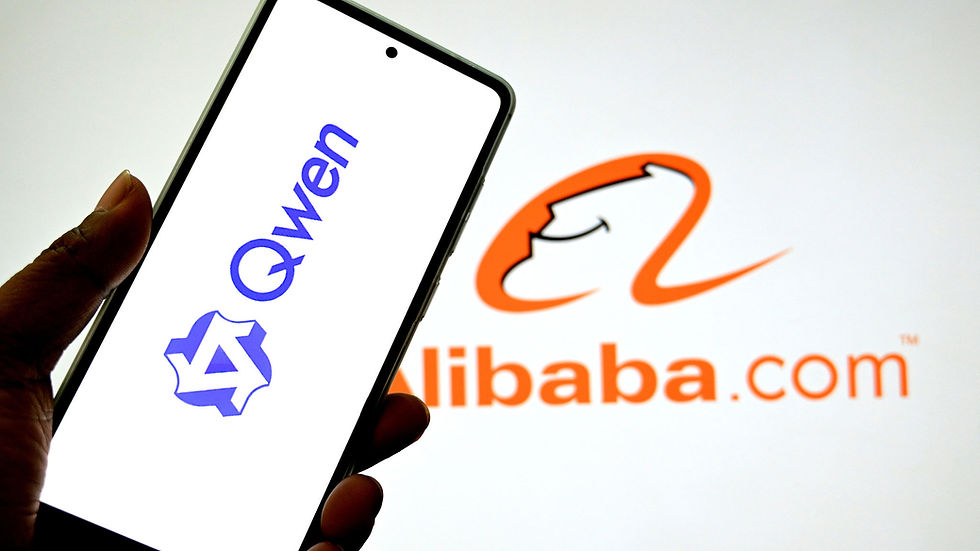Premium Chinese EV Maker Xpeng Targets Mass-Market Segment with Affordable Models to Compete Against BYD
- tech360.tv

- Mar 18, 2024
- 3 min read
Xpeng plans to launch a mass-market brand with autonomous driving systems priced between 100,000 yuan and 150,000 yuan to challenge market leader BYD. The company aims to reduce the development and production costs of autonomous driving technology by 50% this year. Xpeng's move follows similar strategies by Nio and aligns with the Chinese government's support for the EV industry.
Chinese premium electric-vehicle (EV) manufacturer Xpeng is set to launch a new mass-market brand in an effort to challenge market leader BYD. The move comes as the industry faces an escalating price war, and Xpeng aims to capture a larger share of the budget-conscious consumer market.
The upcoming models under the new brand will be equipped with autonomous driving systems and will be priced between 100,000 yuan (US$13,897) and 150,000 yuan. He Xiaopeng, co-founder and CEO of Xpeng, revealed the company's plans during the China EV 100 Forum in Beijing. He stated that the new EVs will cater to both the domestic and global markets, with the potential for future development into fully-autonomous vehicles.
Xpeng aims to reduce the development and production costs of autonomous driving technology by 50% this year, according to a statement from the company. Currently, Xpeng sells smart EVs priced above 200,000 yuan. By targeting the mass-market segment, Xpeng hopes to compete directly with BYD, the world's largest EV builder, which delivered 3.02 million electric and plug-in hybrid vehicles in 2023, most of them priced below 200,000 yuan.
Industry experts suggest that premium EV makers are actively seeking to gain market share from BYD in the 100,000 to 150,000 yuan price range. Eric Han, a senior manager at advisory firm Suolei, noted that BYD currently dominates this segment with its range of models targeting budget-conscious consumers.
Xpeng's decision to launch more affordable models follows a similar move by Shanghai-based Nio, which responded to BYD's price cuts by announcing plans for cheaper models. Nio's CEO, William Li, recently revealed that the company will provide further details about its mass-market brand, Onvo, in May.
Xpeng's strategic shift to a lower price point aligns with the Chinese government's efforts to support the country's EV industry. Gou Ping, vice-chairman of the State-owned Assets Supervision and Administration Commission, emphasised during the forum that the global automotive industry is undergoing a strategic transformation towards electrification.
In line with this, Xpeng has committed to investing a record 3.5 billion yuan this year to develop intelligent cars. The company's existing production models, such as the G6 sport-utility vehicle, already feature the Navigation Guided Pilot system, enabling them to navigate city streets autonomously. However, human intervention is still required in certain situations.
Xpeng's expansion plans were further bolstered last year when it issued additional shares worth HK$5.84 billion (US$746.6 million) to acquire the EV assets of Didi Global. As part of the partnership with the Chinese ride-hailing firm, Xpeng intends to launch a new brand called Mona in 2024.
While the Chinese EV market faces economic uncertainties and intensifying competition, Xpeng's move to target the mass-market segment with affordable models positions the company to capitalise on the growing demand for electric vehicles.
Xpeng plans to launch a mass-market brand with autonomous driving systems priced between 100,000 yuan and 150,000 yuan to challenge market leader BYD.
The company aims to reduce the development and production costs of autonomous driving technology by 50% this year.
Xpeng's move follows similar strategies by Nio and aligns with the Chinese government's support for the EV industry.
Source: SCMP




Comments